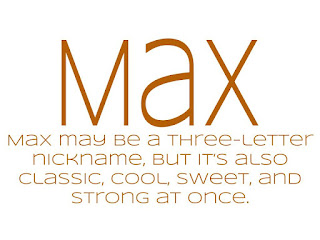Max
Max has been a powerful name from the start. It's a short form of Maximilius. Maximilius, itself, is a diminutive of Roman Maximus, meaning "greatest". This hints that the name dates from ancient times. Two ancient saints also answered to the name. However, the name only became more common after the birth of Maximilian I in the fifteenth century. It was then passed through the Hapsburg dynasty, making it an established German name.
Among English-speakers, Maximilian entered use in the sixteenth century. Shortly afterward, Max became its standard nickname. Max graduated to independent status around the nineteenth century. Perhaps it was even briefly popular in the United States during the 1910s. While it declined afterward, it never dropped below the top 500. This makes Max truly timeless, as classic as Jack.
Today, Max ranks in the 100s. It is in use in multiple languages, including German, Norwegian, and French. Max is also a superstar in children's media, from Maurice Sendak's Where the Wild Things Are to the PBS Kids series Dragon Tales and the Nick Jr. book adaptation Max and Ruby.
Overall, Max catches the appeal of many parents. It's classic, short, sweet, strong, and international at once. Its unconventional "x" ending is a plus.
VARIANTS:
Maxim, Maximilian, Maximus, Maxwell
STYLES:
SISTERS:
Rosie, Eva, Lucy, Cleo, Joy, Molly, Stella, Tess
BROTHERS:
ALTERNATIVES:
Dash, Gus, Mitch, Moe, Monty, Nate, Rex, Trace
FURTHER RESOURCES:
"Max." Names, Behind the Name, 21 Jan. 2022, https://www.behindthename.com/name/max.
Nickerson, Eleanor. "Max." Names of the Week, British Baby Names, 25 Aug. 2019, https://www.britishbabynames.com/blog/2019/08/name-of-the-week-max.html.
What do you think about Max?




Comments
Post a Comment